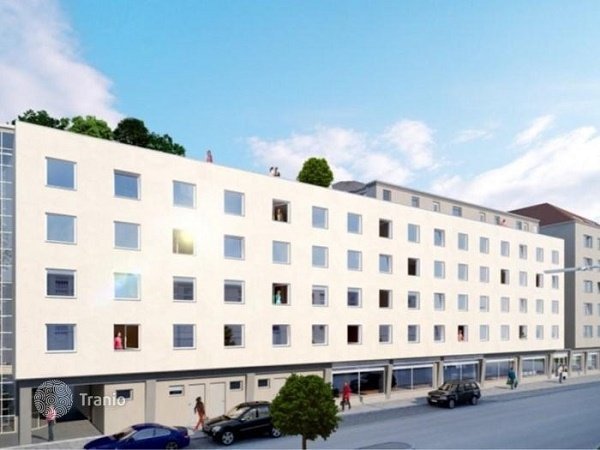High yields and growing demand for student property in the UK and Germany
Higher education is a tangible asset for future generations and, as international mobility increases, demand for quality institutions is growing. According to the OECD, by 2025, there will be 8 million people studying abroad. In Europe, there is a market for student accommodation — particularly in the UK and Germany.
The UK student property market is developed and in strong demand, thanks to the country’s history of academic excellence,
Germany’s universities, on the other hand, have been gaining a steady reputation abroad over recent years. The student accommodation market is quite underdeveloped and characterised by relatively low competition, lack of suitable property and great potential.
Growing demand puts student property under pressure
University studies in developed countries are attracting growing numbers of students, both from overseas and locally. The UK and Germany had 2.3 and 2.7 million students enrolled this year. The number of students in Germany grew by 36% since 2005 and student numbers in London are expected rise by 50% over the next ten years according to JLL.
The UK student property market attracted $6.5 billion in 2015, compared to only $3 billion in the US, which has far more students, according to a Savills report on worldwide investment trends. In the meantime, Germany’s student market only received €220 million investments in 2014.

A key indicator for potential demand in the student property segment is the number of foreign students, as they have to find rental accommodation where they study. Foreign nationals make up 17% of students in the UK and 11% in Germany, where 63% of all students rent flats or apartments in private student complexes, preferably near campus and of 30 sq m, according to Savills.
High yields and lower risk attract foreign investments
In the UK, student property is particularly popular with foreign investors from the US, Russia and the Middle East. American investments made up 80% of

€220 million was invested into German student property in 2014, almost twice as much as in 2013, and according to the Savills forecasts, this figure will increase by 22% by 2020.
Investors choosing student accommodation are also better off than those buying standard rental property: prime initial yields on direct let student property are about 5% in both Germany and the UK according to Savills’s World Student Housing report 2015/16.
In 2015, yields in the UK ranged
Average yields for student apartments on the UK market are
5-6% (in GBP) where there is moderate risk involved. Higher yields assume higher risks when investing, namely ineffective management, less attractive locations, lower quality buildings (rundown structures/apartments), decreased liquidity on exiting the project, etc. Due to the distinctive features of student property, the conversion of PBSAs ina low-performing location could also be difficult if demand for housing declines. The financial viability of the investment in this case will be put under strain.
Strong interest in the UK can be explained by the fact that private investors have only recently been granted access to student accommodation, as before they were sold in block to UK pension funds. At the same time, UK developers offer attractive terms.
Top UK and German cities for student investments
The university accommodation markets are structured differently in these countries. In the UK, investors will see better yields in northern cities such as Liverpool, Manchester and Leeds, which are recognised academic hubs. In Germany, this segment is located in less traditional destinations: the best investments are made into academic cities rather than the countries “Big Seven” that attract the highest commercial investments overall.
UK: top investment destinations in the North
Cities in the north of the UK present excellent investment prospects as over two thirds of student rentals are not in
| City | County |
|---|---|
| Liverpool | Merseyside |
| Leeds | Yorkshire |
| Manchester | Greater Manchester |
| Newcastle | Tyne and Wear |
| Sheffield | South Yorkshire |
Germany: top investment destinations in smaller cities
“The right city for investing in student property for sale in Germany is determined by two factors. Firstly, there must be an investment ‘magnet’ which is one or more academic institutions, popular with students. Secondly, the absence of the supply excess in the local rental market, which see students choosing from standard residential rentals rather than
| City | Federal state |
|---|---|
| Würzburg | Bavaria |
| Heidelberg | |
| Nuremberg | Bavaria |
| Passau | Bavaria |
| Frankfurt am Main | Hessen |
What to remember
When compared to other types of commercial property, student accommodation has a number of advantages:
- relatively low barriers to entry: investors can buy the whole building or one/several units
- lower building costs for student property compared to standard accommodation
- stable demand: this segment is less affected by economic crises
Nevertheless, there are some risks involved.
Student property is more difficult to sell than regular flats as it has its own market audience and is built near large education hubs. Small investors do not have the possibility of transforming these into standard accommodation if they expect a guaranteed yield and often require the services of a management company, which will also detract from revenue. Nevertheless, all the signs are pointing towards growing success and demand for British and German universities and student accommodation, which is why we recommend them to clients looking for relatively high and stable yields.
Ivan Chepizhko, Tranio
We will send you a content digest not more than once a week


